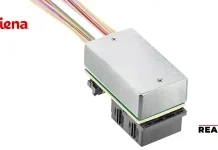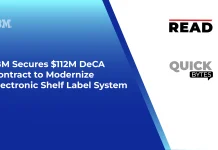Soterix Medical Inc. (SMI), a global leader in non-invasive neuromodulation and synergistic brain monitoring technologies, announced that it has been awarded a Fast Track grant from the National Institute of Mental Health (NIMH). The award implements a personalized parcel-guided repetitive Transcranial Magnetic Stimulation (rTMS) approach through cloud-based targeting software and validates performance in clinical trials in patients with treatment resistant depression at Columbia University. The grant follows a pilot study demonstrating that rTMS targeting a specific parcel of the Human Connectome Project (HCP) atlas led to a 100% response in patients who were resistant to the standard 5-cm rule treatment. Soterix Medical’s award is for $910,000 over two years, expandable by an additional $1.4 million for follow-on pivotal clinical trials.
TMS over the left dorsolateral prefrontal cortex is currently an FDA-approved treatment for treatment-refractory depression but only partially effective, with response and remission rates of ~41% and ~35% respectively.
Dr. Dennis Truong, Scientist at Soterix Medical and Principal Investigator of the project says, “Using a proprietary parcel-guided targeting approach, we will develop a software enabling clinicians to perform rTMS procedures for their patients with higher accuracy. This novel technology may revolutionize the field of rTMS, with the potential to cure millions of people from debilitating depressive episodes, who would not otherwise recover. Our ultimate goal is to develop an FDA approved targeting algorithm for standard TMS-resistant Treatment resistant Depression.”
Soterix Medical already holds FDA clearance for Neuronavigation that is intended for the accurate positioning of treatment coil during rTMS. If successful, the final system will be a cloud-based application that can be integrated with any rTMS and Neuronavigation system.
R&D Engineer Mr. Alex Guillen adds, “Leveraging the Human Connectome Project atlas to guide personalized rTMS therapy is currently beyond the capability of conventional rTMS providers. Our cloud-based solution will enable practitioners to use this state-of-the-art targeting approach. Moreover, the software in principle would permit analogous targeting of alternative stimulation sites for other neuropsychiatric conditions.”






